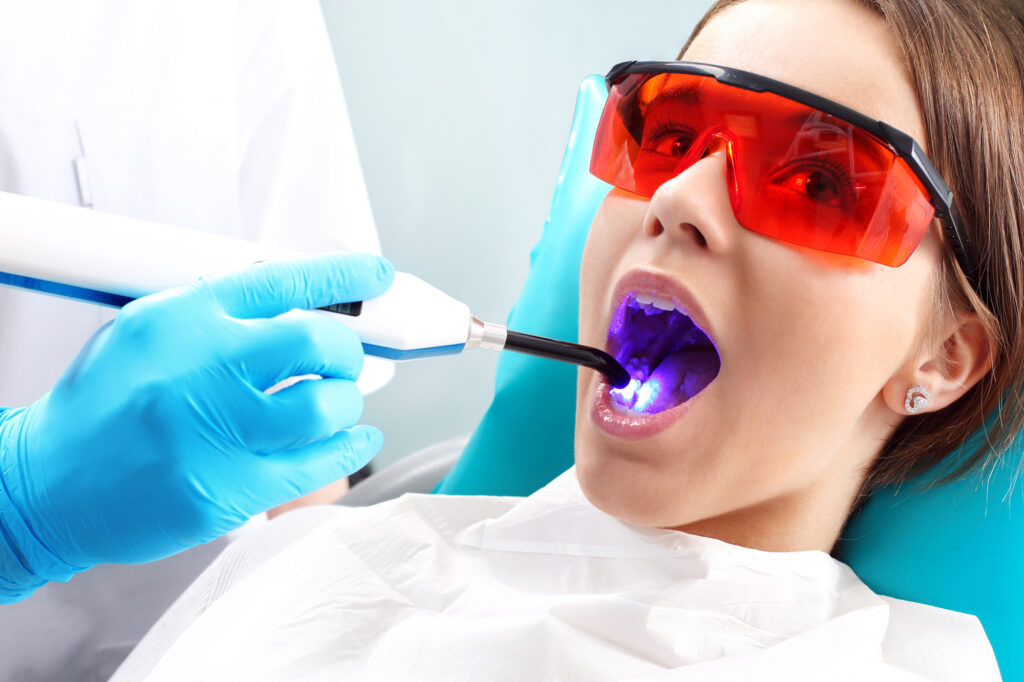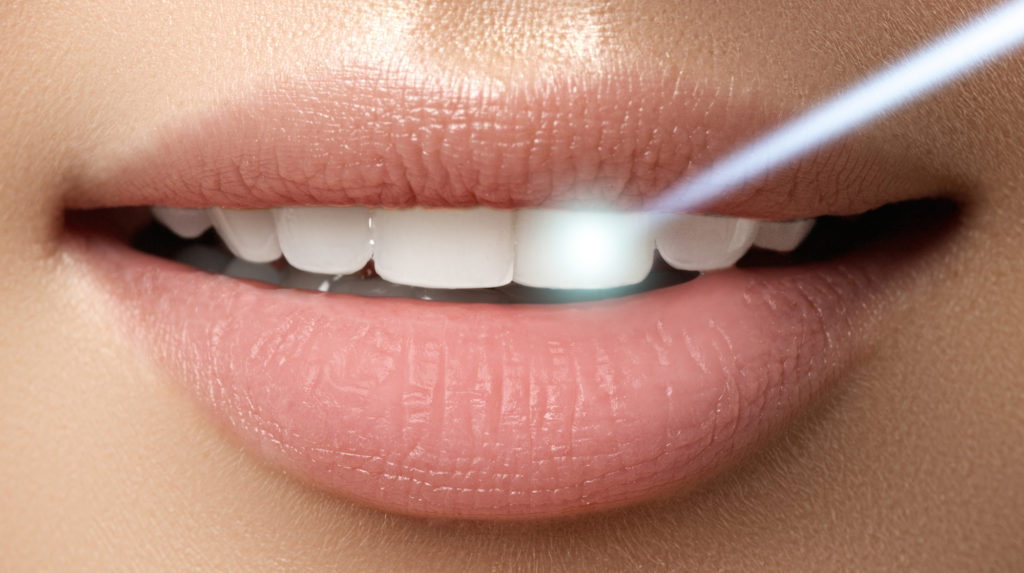
Laser dentistry is revolutionizing many dental procedures because of the benefits it affords patients. Lasers make dental treatments more comfortable, faster, and cost-effective.
1. What is laser dentistry?
Laser dentistry is the use of lasers to perform a dental procedure. The lasers create light energy in a very narrow, focused beam. That beam creates a reaction when it comes into contact with tissue which allows the tissue in the mouth to be removed or reshaped.
2. How are hard and soft tissue lasers different?
The wavelength from hard tissue lasers is highly absorbable by hydroxyapatite. Hard tissue lasers also include Erbium Chromium YSGG and Erbium YAG. This allows this type of laser to cut through teeth and bones with a high degree of accuracy. Hard tissue lasers are most often used for procedures such as prepping a tooth for filling, root canal treatment, shaping a tooth for crown placement, and removing decay.
Soft tissue lasers absorb water and hemoglobin, a protein found in red blood cells, at a high rate. They also include Neodymium YAG, a crystal, in diode lasers, which aids in the killing of bacteria and the regrowth of tissues. Soft lasers seal nerve endings and blood vessels, meaning patients experience little to no pain after treatment. These reasons make soft tissue laser treatments a preferred treatment for many dentists when performing certain procedures such as treating periodontitis, a gum infection that damages soft tissues in the mouth.
3. What are some examples of laser dentistry treatments?
Laser dentistry is primarily used for two types of treatments: those for hard tissue and those for soft tissue. Hard tissue treatment refers to procedures performed on teeth while soft tissue treatment refers to those performed on gums.
Hard tissue procedures include:
- Cavity detection and treatment. Lasers can detect cavities early because they are more adept at finding evidence of tooth decay. Additionally, once located, lasers can kill bacteria in a cavity without the need for traditional drilling. That can help preserve the long-term health of a tooth. Lasers also eliminate the need for anesthesia which makes the patient more comfortable.
- Treating tooth sensitivity. Teeth that are highly sensitive to hot and cold are treated with lasers that seal tubules on the tooth’s root leading to less discomfort.
Soft tissue procedures include:
- Scaling and root planing. Plaque and tartar are removed from above and below the gumline and then the tooth’s roots are smoothed over to help the gums reattach to the tooth.
- Gum surgery. Lasers aid in gum surgery as they seal blood vessels which reduces inflammation and sensitivity.
- Treating a gummy smile. Lasers are used to reshape gum tissue where the gums’ length covers much of the tooth.
- Teeth whitening. Lasers can also help in teeth whitening as they speed up the bleaching process during whitening sessions.
4. How much does laser dentistry cost?
The cost of laser treatment varies depending on the procedure and the equipment being employed. Insurers often determine reimbursement costs based on procedures rather than the method the treatment is completed by. However, laser treatments may be less expensive overall than traditional treatments because they can usually be completed in fewer visits.
To be certain, patients should always inquire about their specific policy beforehand any treatment begins.
5. Are there risks associated with laser treatment?
The risks of laser dental treatment are relatively few. A dental professional may have the patient use special glasses to protect her eyes from the laser. It is always important to find a qualified dental professional to perform any laser treatment. Using the wrong wavelength, for example, could damage tissue.
Quality Laser Dentistry in Austin, TX
Dr. Ragsdale is one of the area’s leading professionals on the use of dental lasers. She has taught laser dentistry techniques to many other dental professionals in the area.
Let her and the team at Austin Laser Dentist show you the many benefits of laser dentistry. Call (512) 346-4690 or book a one-on-one consultation through our website to get started today.



